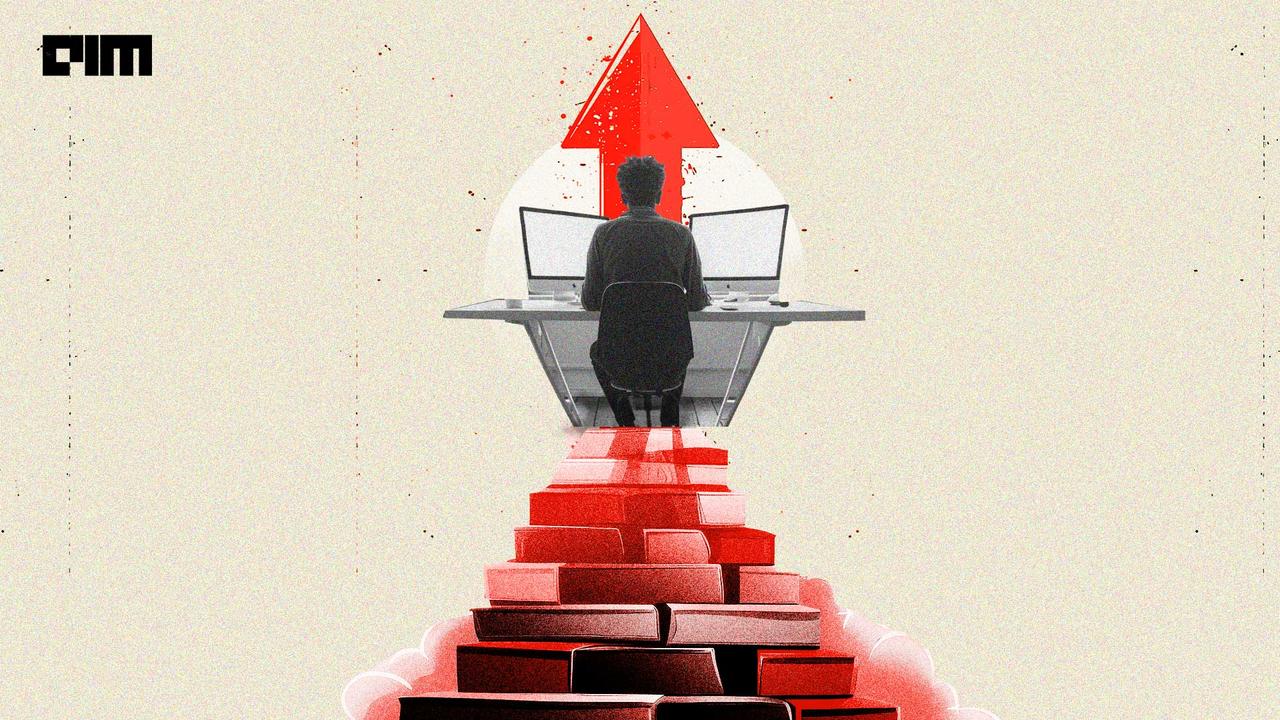AI Won't Replace Computer Scientists: 10 Reasons Why Human Expertise Remains Crucial
2 Sources
2 Sources
[1]
AI won't replace computer scientists any time soon - here are 10 reasons why
As AI systems expand their already impressive capacities, there is an increasingly common belief that the field of computer science (CS) will soon be a thing of the past. This is being communicated to today's prospective students in the form of well-meaning advice, but much of it amounts to little more than hearsay from individuals who, despite their intelligence, speak outside of their expertise. High-profile figures like Nobel Prize-winning economist Christopher Pissarides have made this argument, and as a result it has taken root on a much more mundane level - I have even personally heard high school careers advisers dismiss the idea of studying CS outright, despite having no knowledge of the field itself. These claims typically share two common flaws. First among them is that the advice comes from people who are not computer scientists. Secondly, there is a widespread misunderstanding of what computer science actually involves. AI and the myth of code replacement It is not wrong to say that AI can write computer code from prompts, just as it can generate poems, recipes and cover letters. It can boost productivity and speed up workflow, but none of this eliminates the value of human input. Writing code is not synonymous with CS. One can learn to write code without ever attending a single university class, but a CS degree goes far beyond this one skill. It involves, among many other things, engineering complex systems, designing infrastructure and future programming languages, ensuring cybersecurity and verifying systems for correctness. AI cannot reliably do these tasks, nor will it be able to in the foreseeable future. Human input remains essential, but pessimistic misinformation risks steering tens of thousands of talented students away from important, meaningful careers in this vital field. What AI can and can't do AI excels at making predictions. Generative AI enhances this by adding a user-friendly presentation layer to internet content - it rewrites, summarises and formats information into something that resembles a human's work. However, current AI does not genuinely "think". Instead, it relies on logical shortcuts, known as heuristics, that sacrifice precision for speed. This means that, despite speaking like a person, it cannot reason, feel, care, or desire anything. It does not work in the same way as a human mind. Not long ago it seemed that 'prompt engineering' would replace CS. Today, however, there are virtually no job postings for prompt engineers, while companies like LinkedIn report that the responsibilities of CS professionals have actually expanded. Read more: It's time to stop debating whether AI is genuinely intelligent and focus on making it work for society Where AI falls short What AI provides is more powerful tools for CS professionals to do their jobs. This means they can now take concepts further - from ideation to market deployment - while requiring fewer support roles and more technical leadership. There are, however, many areas where specialised human input is still essential, whether for trust, oversight or the need for human creativity. Examples abound, but there are 10 areas that stand out in particular: Adapting a hedge fund algorithm to new economic conditions. This requires algorithmic design and deep understanding of markets, not just reams of code. Diagnosing intermittent cloud service outages from providers like Google or Microsoft. AI can troubleshoot on a small scale, but it cannot contextualise large-scale, high-stakes troubleshooting. Rewriting code for quantum computers. AI cannot do this without extensive examples of successful implementations (which do not currently exist). Designing and securing a new cloud operating system. This involves high-level system architecture and rigorous testing that AI cannot perform. Creating energy-efficient AI systems. AI cannot spontaneously invent lower power GPU code, or reinvent its own architecture. Building secure, hacker-proof, real-time control software for nuclear power plants. This requires embedded systems expertise to be mixed with the translation of code and system design. Verifying that a surgical robot's software works under unpredictable conditions. Safety-critical validation exceeds AI's current scope. Designing systems to authenticate email sources and ensure integrity. This is a cryptographic and multi-disciplinary challenge. Auditing and improving AI-driven cancer prediction tools. This requires human oversight and continuous system validation. Building the next generation of safe and controllable AI. Evolving towards safer AI cannot be done by AI itself - this is a human responsibility. Why Computer Science is still indispensable One thing is certain: AI will reshape how engineering and Computer Science is done. But what we are faced with is a shift in working methods, not a wholesale destruction of the field. Whenever we face an entirely new problem or complexity, AI alone will not suffice for one simple reason: it depends entirely on past data. Maintaining AI, building new platforms, and developing fields like trustworthy AI and AI governance therefore all require CS. The only scenario in which we might not need CS is if we reach a point where we no longer expect any new languages, systems, tools, or future challenges. This is vanishingly unlikely. Some argue that AI may eventually perform all of these tasks. It's not impossible, but even if AI became this advanced, it would place almost all professions at equal risk. One of the few exceptions would be those who build, control, and advance AI. There is a historical precedent to this: during the industrial revolution, factory workers were displaced at a 50 to 1 ratio as a result of rapid advances in machinery and technology. In that case, the workforce actually grew with a new economy, but most of the new workers were those who could operate or fix machines, develop new machines, or design new factories and processes around machinery. During this period of massive upheaval, technical skills were actually the most in-demand, not the least. Today, the parallel holds true: technical expertise, especially in CS, is more valuable than it ever has been. Let's not confuse the next generation with the opposite message.
[2]
AI won't replace computer scientists any time soon - here are 10 reasons why
AI cannot reliably do these tasks, nor will it be able to in the foreseeable future, says Ikhlaq Sidhu, the Dean of the IE School of Science and Technology, at IE University. A version of this article was originally published by The Conversation (CC BY-ND 4.0) As AI systems expand their already impressive capacities, there is an increasingly common belief that the field of computer science (CS) will soon be a thing of the past. This is being communicated to today's prospective students in the form of well-meaning advice, but much of it amounts to little more than hearsay from individuals who, despite their intelligence, speak outside of their expertise. High-profile figures like Nobel Prize-winning economist Christopher Pissarides have made this argument and as a result it has taken root on a much more mundane level - I have even personally heard high school careers advisers dismiss the idea of studying CS outright, despite having no knowledge of the field itself. These claims typically share two common flaws. First among them is that the advice comes from people who are not computer scientists. Secondly, there is a widespread misunderstanding of what computer science actually involves. AI and the myth of code replacement It is not wrong to say that AI can write computer code from prompts, just as it can generate poems, recipes and cover letters. It can boost productivity and speed up workflow, but none of this eliminates the value of human input. Writing code is not synonymous with CS. One can learn to write code without ever attending a single university class, but a CS degree goes far beyond this one skill. It involves, among many other things, engineering complex systems, designing infrastructure and future programming languages, ensuring cybersecurity and verifying systems for correctness. AI cannot reliably do these tasks, nor will it be able to in the foreseeable future. Human input remains essential, but pessimistic misinformation risks steering tens of thousands of talented students away from important, meaningful careers in this vital field. What AI can and can't do AI excels at making predictions. Generative AI enhances this by adding a user-friendly presentation layer to internet content - it rewrites, summarises and formats information into something that resembles a human's work. However, current AI does not genuinely "think". Instead, it relies on logical shortcuts, known as heuristics, that sacrifice precision for speed. This means that, despite speaking like a person, it cannot reason, feel, care, or desire anything. It does not work in the same way as a human mind. Not long ago it seemed that 'prompt engineering' would replace CS. Today, however, there are virtually no job postings for prompt engineers, while companies like LinkedIn report that the responsibilities of CS professionals have actually expanded. Where AI falls short What AI provides is more powerful tools for CS professionals to do their jobs. This means they can now take concepts further - from ideation to market deployment - while requiring fewer support roles and more technical leadership. There are, however, many areas where specialised human input is still essential, whether for trust, oversight or the need for human creativity. Examples abound, but there are ten areas that stand out in particular: Adapting a hedge fund algorithm to new economic conditions. This requires algorithmic design and deep understanding of markets, not just reams of code. Diagnosing intermittent cloud service outages from providers like Google or Microsoft. AI can troubleshoot on a small scale, but it cannot contextualise large-scale, high-stakes troubleshooting. Rewriting code for quantum computers. AI cannot do this without extensive examples of successful implementations (which do not currently exist). Designing and securing a new cloud operating system. This involves high-level system architecture and rigorous testing that AI cannot perform. Creating energy-efficient AI systems. AI cannot spontaneously invent lower power GPU code, or reinvent its own architecture. Building secure, hacker-proof, real-time control software for nuclear power plants. This requires embedded systems expertise to be mixed with the translation of code and system design. Verifying that a surgical robot's software works under unpredictable conditions. Safety-critical validation exceeds AI's current scope. Designing systems to authenticate email sources and ensure integrity. This is a cryptographic and multi-disciplinary challenge. Auditing and improving AI-driven cancer prediction tools. This requires human oversight and continuous system validation. Building the next generation of safe and controllable AI. Evolving towards safer AI cannot be done by AI itself - this is a human responsibility. Why Computer Science is still indispensable One thing is certain: AI will reshape how engineering and Computer Science is done. But what we are faced with is a shift in working methods, not a wholesale destruction of the field. Whenever we face an entirely new problem or complexity, AI alone will not suffice for one simple reason: it depends entirely on past data. Maintaining AI, building new platforms, and developing fields like trustworthy AI and AI governance therefore all require CS. The only scenario in which we might not need CS is if we reach a point where we no longer expect any new languages, systems, tools, or future challenges. This is vanishingly unlikely. Some argue that AI may eventually perform all of these tasks. It's not impossible, but even if AI became this advanced, it would place almost all professions at equal risk. One of the few exceptions would be those who build, control and advance AI. There is a historical precedent to this: during the industrial revolution, factory workers were displaced at a 50 to one ratio as a result of rapid advances in machinery and technology. In that case, the workforce actually grew with a new economy, but most of the new workers were those who could operate or fix machines, develop new machines, or design new factories and processes around machinery. During this period of massive upheaval, technical skills were actually the most in-demand, not the least. Today, the parallel holds true: technical expertise, especially in CS, is more valuable than it ever has been. Let's not confuse the next generation with the opposite message. By Ikhlaq Sidhu Ikhlaq Sidhu has been dean and professor at the School of Science and Technology at IE University in Madrid since 2022. He has been the founding director of the Sutardja Center for Entrepreneurship and Technology at the University of California, Berkeley since 2005.
Share
Share
Copy Link
Despite AI's advancements, computer science remains an essential field. This article explores why AI cannot fully replace human expertise in computer science, highlighting ten key areas where specialized human input is still crucial.
The Misconception of AI Replacing Computer Scientists
As artificial intelligence (AI) continues to advance, a growing misconception suggests that the field of computer science (CS) may soon become obsolete. This belief has been propagated by high-profile figures, including Nobel Prize-winning economist Christopher Pissarides, and has even influenced career advisers at the high school level
1
. However, these claims often stem from two fundamental flaws: they are made by individuals who are not computer scientists themselves, and they demonstrate a widespread misunderstanding of what computer science actually entails.The Reality of AI's Capabilities in Coding
While it's true that AI can generate computer code from prompts, much like it can create poems or recipes, this ability does not negate the value of human input in the field of computer science. Writing code is just one aspect of CS, and a computer science degree encompasses much more than this single skill
1
.The Breadth and Depth of Computer Science
Computer science involves a wide range of complex tasks that go far beyond mere coding. These include:
- Engineering complex systems
- Designing infrastructure and future programming languages
- Ensuring cybersecurity
- Verifying systems for correctness
AI, in its current state, cannot reliably perform these tasks, nor is it expected to do so in the foreseeable future
2
.Understanding AI's Limitations

Source: The Conversation
While AI excels at making predictions and can enhance productivity by rewriting, summarizing, and formatting information, it lacks genuine "thinking" capabilities. AI relies on heuristics, which are logical shortcuts that sacrifice precision for speed. This means that despite its ability to generate human-like responses, AI cannot reason, feel, care, or desire anything in the way a human mind does
1
.Ten Areas Where Human Expertise Remains Crucial
There are numerous areas where specialized human input is still essential in computer science. Here are ten standout examples:
- Adapting hedge fund algorithms to new economic conditions
- Diagnosing intermittent cloud service outages from major providers
- Rewriting code for quantum computers
- Designing and securing new cloud operating systems
- Creating energy-efficient AI systems
- Building secure, real-time control software for nuclear power plants
- Verifying surgical robot software for unpredictable conditions
- Designing systems to authenticate email sources and ensure integrity
- Auditing and improving AI-driven cancer prediction tools
- Building the next generation of safe and controllable AI
2
Related Stories
The Evolving Role of Computer Scientists

Source: Silicon Republic
Rather than replacing computer scientists, AI is providing them with more powerful tools to do their jobs. This shift allows CS professionals to take concepts further, from ideation to market deployment, while requiring fewer support roles and more technical leadership
1
.The Indispensability of Computer Science
Computer science remains indispensable for several reasons:
- AI depends entirely on past data and cannot solve entirely new problems or complexities on its own.
- Maintaining AI, building new platforms, and developing fields like trustworthy AI and AI governance all require human expertise in computer science.
- The field of computer science is constantly evolving, with new languages, systems, tools, and challenges emerging regularly
2
.
While some argue that AI may eventually perform all these tasks, even if this were to happen, it would place almost all professions at equal risk. Ironically, one of the few exceptions would be those who build, control, and advance AI itself – computer scientists
1
.References
Summarized by
Navi
[1]
[2]
Related Stories
AI's Impact on Software Engineering: Industry Leaders Predict Shift in Coding Landscape
22 Mar 2025•Technology

Tech Leaders Predict Surge in Software Engineering Jobs Despite AI Advancements
12 Apr 2025•Business and Economy

The Double-Edged Sword of AI: Enhancing Efficiency While Potentially Dulling Critical Thinking
19 Feb 2025•Technology

Recent Highlights
1
ByteDance's Seedance 2.0 AI video generator triggers copyright infringement battle with Hollywood
Policy and Regulation

2
Demis Hassabis predicts AGI in 5-8 years, sees new golden era transforming medicine and science
Technology

3
Nvidia and Meta forge massive chip deal as computing power demands reshape AI infrastructure
Technology





